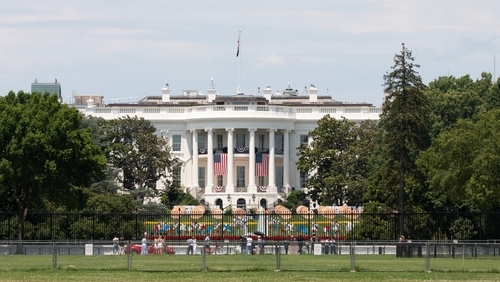IBM's software sales disappoint, eclipsing AI mainframe revival

- IBM shares fall 5% in extended trading after a ~30% rise this year
- Software sales miss market estimates in Q2 on transaction processing weakness
- Consulting sales rise but management cautious about future growth
- AI upgrades refresh mainframe demand
July 23 (Reuters) - IBM IBM.N beat Wall Street estimates for second-quarter revenue and profit on Wednesday, but lower-than-expected sales in its mainstay software segment overshadowed a renewal in demand for the mainframe business spurred by AI upgrades.
IBM's shares fell 5% in extended trading, after a nearly 30% rise this year driven by investors betting on prioritized software spending as businesses navigated macroeconomic uncertainty and ongoing trade negotiations.
"You're seeing the stock pull back, because there's just not a lot of room to miss," said Dan Morgan, senior portfolio manager at Synovus Trust, which holds shares in IBM.
"This would be more evidence that software is not growing at the pace that the Street was expecting."
IBM's software segment, which has traditionally been a bright spot, reported sales of $7.39 billion, missing analysts' average estimate of $7.41 billion, according to data compiled by LSEG.
Customers funneled investment towards IBM's latest AI-specialized mainframes, diverting revenue from transaction processing, which primarily accounts for software run on the mainframe, finance chief Jim Kavanaugh told Reuters.
Transaction processing sales — which were mostly flat in the quarter — are housed in the software unit, dragging the segment's performance.
The infrastructure segment, which houses its mainframe, reported revenue of $4.14 billion, beating estimates of $3.81 billion.
The Big Blue reported revenue of $16.98 billion for the June quarter, beating estimates of $16.59 billion. Adjusted earnings of $2.80 per share also beat estimates.
Consulting sales grew 3%, ending five consecutive quarters of revenue declines, as businesses seek expertise on integrating AI products.
However, given the "current demand environment," IBM is "prudently cautious" on how much the consulting segment might contribute to further growth this year, Kavanaugh said during a post-earnings call.
Its "AI book of business," which combines bookings and actual sales, grew to $7.5 billion, up $1.5 billion from the previous quarter.
IBM did not provide a forecast for the third quarter, after it broke tradition in April and issued a one-off quarterly outlook to give investors more clarity at a time when U.S. President Donald Trump's global tariffs were first going into effect.







